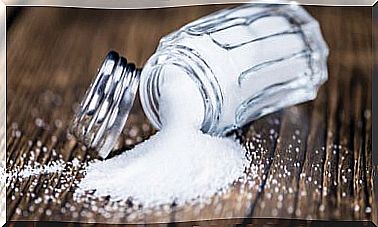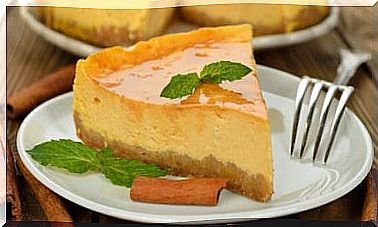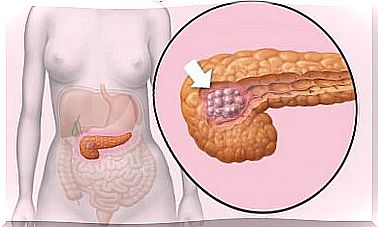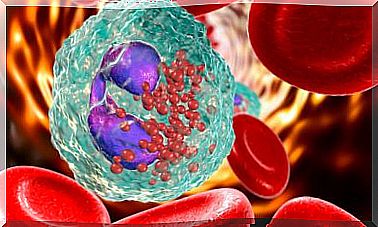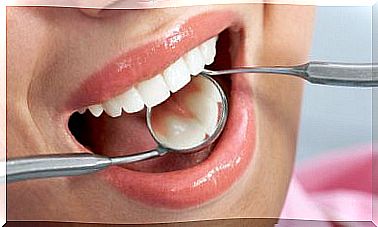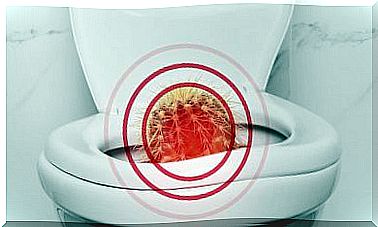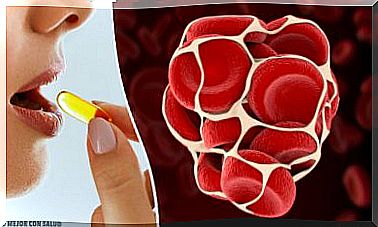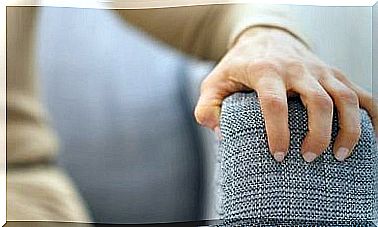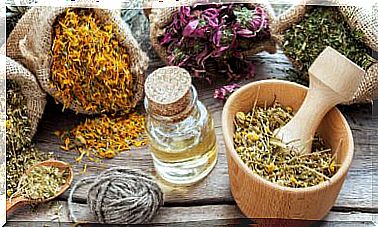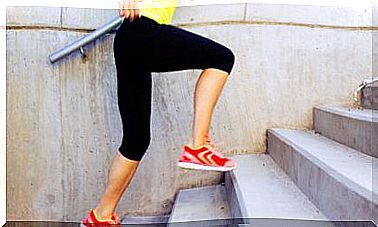5 Foods To Avoid If You Suffer From Overactive Bladder
Although spicy foods have multiple benefits, in case of overactive bladder it is better to avoid their consumption, since they can irritate tissues and promote urination
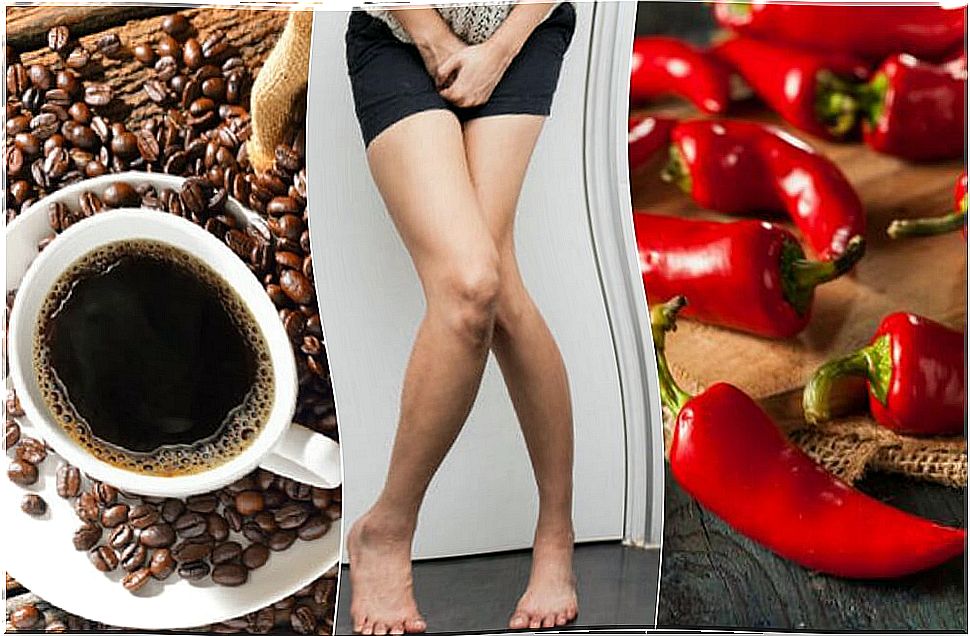
An overactive bladder is one that produces a sudden and urgent need to urinate. It is a syndrome caused by the involuntary contraction of the muscles that surround this organ, which can cause uncontrollable urine leakage (urge incontinence).
For those who suffer from it, it is very embarrassing, not only because it is difficult to control, but because urine leakage is embarrassing and can limit social and work life. Most worrisome is that many ignore the problem and, by not providing timely treatment, develop severe incontinence and other urinary conditions.
For this reason, it is important to know what measures to take to control it and what foods can have harmful effects when added to the diet. Next we want to review some of its main causes and 5 foods that are better to avoid to avoid other complications.
What are the causes of overactive bladder?
An overactive bladder develops when the muscles that surround this organ begin to contract involuntarily, even though the urine stored is minimal. This contraction triggers an urgent need to urinate, which often results in unwanted leaks if the person does not go to the bathroom immediately.
Risk factor’s
Loss of bladder control may have unknown causes. However, there are several triggers that have been associated with its development:
- Excessive fluid intake
- Neurological disorders
- Diuretic drugs
- Acute urinary tract infections
- Mellitus diabetes
- Enlarged prostate
- Constipation
- Impaired cognitive function due to aging
- Excessive caffeine or alcohol consumption
- Bladder abnormalities, such as tumors or stones
- Incomplete emptying of the bladder
- Herniated discs
- Stress
Symptoms of an overactive bladder
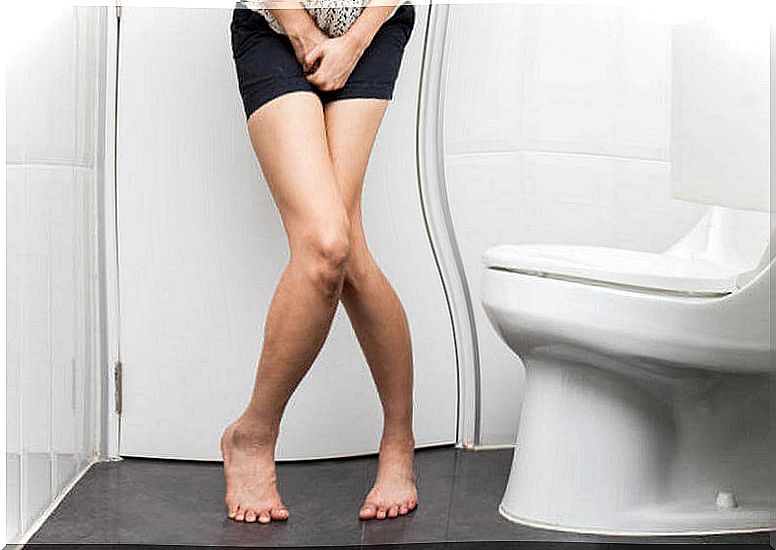
Overactive bladder syndrome produces a series of changes in urination habits. Its main symptoms include:
- Sudden and urgent need to urinate
- Involuntary leakage of urine
- Urinate more often, eight or more times throughout the day
- Need to urinate at night (nocturia)
What are the foods to avoid in case of overactive bladder?
Excessive consumption of some foods can be harmful for patients with overactive bladder, since its components increase irritation and inflammation of this organ. It is very important to limit their intake, at least during treatment, as they can interfere with the recovery process.
1 tomato
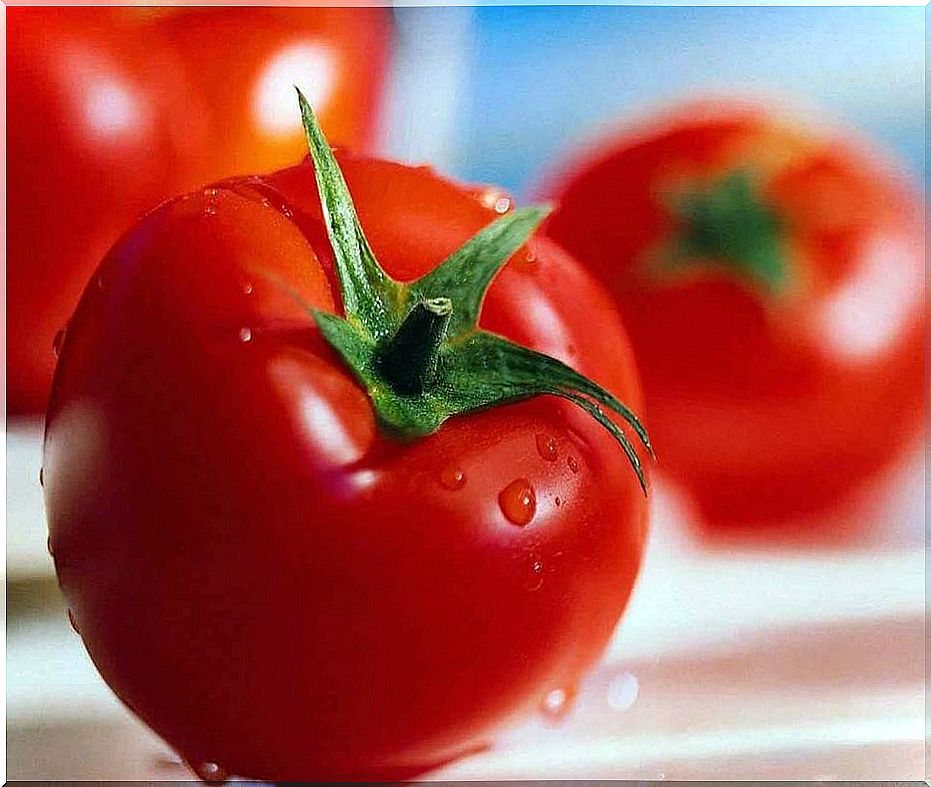
We cannot deny that tomato is one of the most nutritious foods. However, in the case of patients with this bladder disorder, it is not the most advisable.
- This fruit contains acids that irritate the urinary ducts and bladder tissues. Its diuretic effect increases urine production and can cause further leakage.
- On the other hand, it can be much worse when cooked, as its acidity intensifies and sugar is sometimes added to it.
2. Coffee
Coffee, and in general foods that contain caffeine, can have detrimental effects on patients who have difficulty controlling their urine.
- This stimulant can cause brain hyperactivity and nervousness, even when consumed in small doses.
- These consequences interfere with the functions of the bladder, increasing the need to empty, even when there is little fluid to expel.
3. Spicy foods
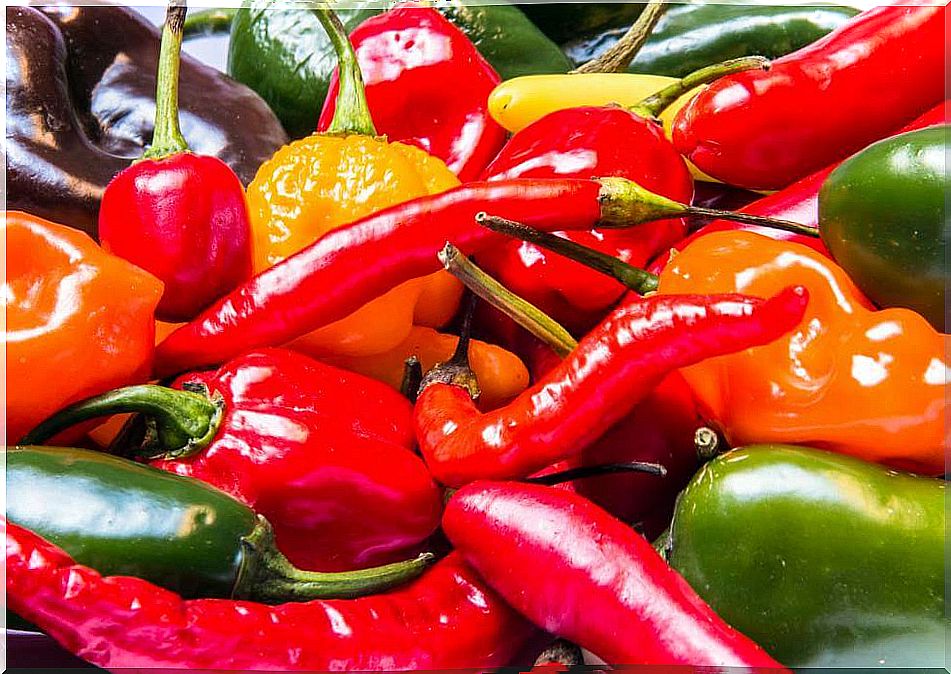
Many spicy condiments contain nutrients that benefit health. Despite this, they are not recommended in cases of bladder and urinary tract problems, due to the irritability they can cause in the tissues.
- Spicy dishes trigger an inflammatory response that can make it difficult for the bladder to work.
- Therefore, the ideal is to limit cayenne pepper, chili peppers, turmeric and any seasoning that has this characteristic in the diet.
4. Citrus juices
They are delicious and represent an important source of vitamin C. However, due to their high concentration of acids, they should not be ingested by patients with an overactive bladder.
- Its composition can increase the irritation of the bladder, increasing the contractions that produce the desire to urinate.
- In addition, they have a slight diuretic effect that can boost the expulsion of liquids, increasing leaks.
5. Sugary food

All types of sugary foods, including desserts that contain artificial sweeteners, have detrimental effects on the body when consumed in excess.
- Refined sugar irritates the mucous membranes of the body and increases imbalances in the level of inflammation.
- This influences the uncontrolled urination habits and the appearance of pain and burning in the bladder.
- Therefore, try to avoid bakery products, sweets and any sugary food.
If you are having symptoms of an overactive bladder, see your doctor. While there are some factors that cannot be controlled, there are therapies and medications that can help reduce it so that it does not affect quality of life.
